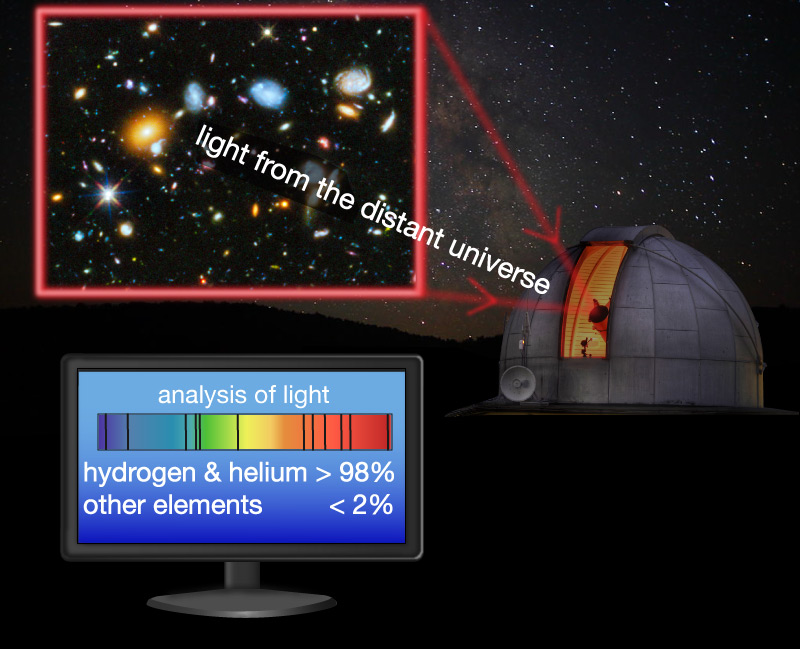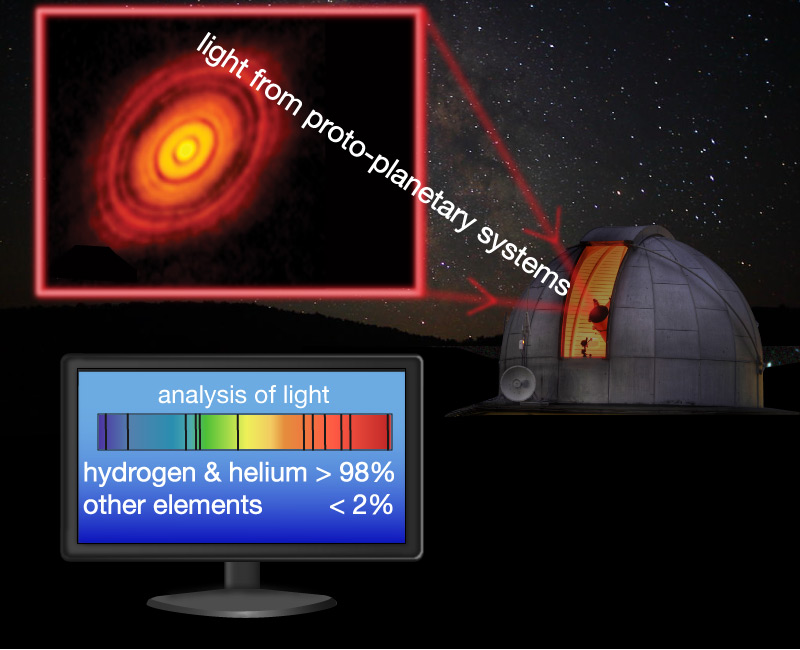Why was the disk mostly hydrogen and helium?
We’ve said that the disk in which the planets formed had about 98% of its mass in the form of hydrogen and helium gas, with about ¾ of it as hydrogen and ¼ of it as helium. All other elements combined made up less than about 2% of the mass. From the virtual tour of the solar system, you may recall that the Sun has this same overall composition. Moreover, telescopic observations have shown that virtually all other stars and gas clouds in the universe share this same general chemical composition. In other words, the chemical composition of the universe as a whole is at least 98% hydrogen and helium. (Note that this does not include the mysterious dark matter, which is not thought to be made up of ordinary chemical elements.)



Of course, this leads to a deeper question: Why does the universe as a whole have a chemical composition that is almost entirely hydrogen and helium? Scientists trace the answer all the way to the beginning of the universe in the Big Bang. Recall that hydrogen and helium are the two simplest chemical elements (that is why they are the first two elements in the periodic table): hydrogen has a nucleus that consists of just a single proton, and a helium nucleus contains two protons and two neutrons. Apparently, when the universe was first born, it contained only these two chemical elements. All other elements were made later by stars, but even after 14 billion years, the universe still contains only a very small proportion (less than about 2%) of these other elements.
To summarize: The universe was born with only two chemical elements, hydrogen and helium, and these two elements still represent more than 98% of the universe’s overall chemical composition. That is why the Sun ended up with this composition, and why the disk in which the planets formed shared this same composition.
Note: Although the details are beyond what we can cover here, the idea that the universe began with only hydrogen and helium and no other chemical elements is supported both by observational evidence and by theoretical models of conditions during the first few minutes after the Big Bang. In fact, these models predict that the universe should have started with a chemical composition that is 75% hydrogen and 25% helium, so the fact that observations confirm this prediction is one of several strong lines of evidence supporting the idea the universe began with the Big Bang.